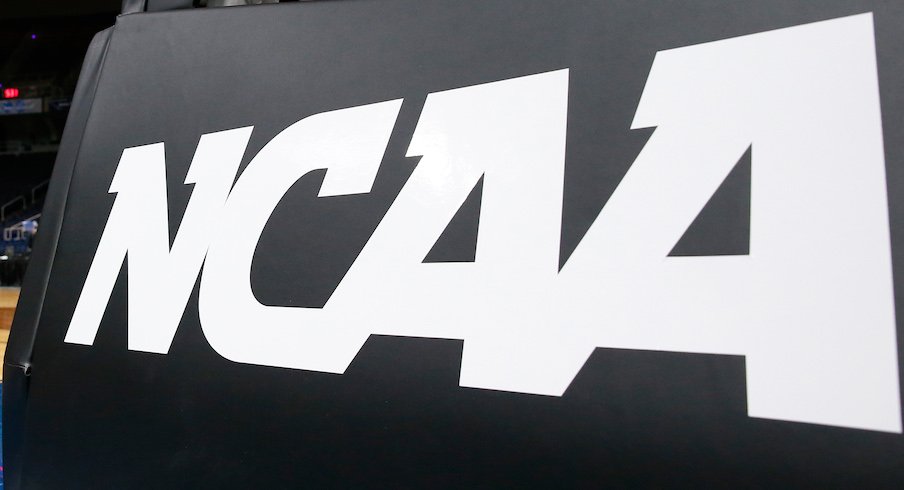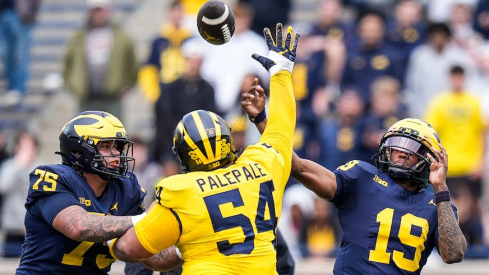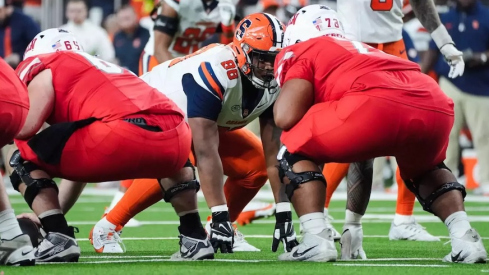The NCAA's amateurism model could be facing its biggest challenge yet.
California governor Gavin Newsom officially signed the Fair Pay to Play Act on Monday, which will allow student-athletes in the state to profit off their name, image and likeness – beginning in 2023 – and will prevent schools from revoking a student-athlete's scholarship or eligibility for receiving compensation.
Colleges reap billions from student athletes but block them from earning a single dollar. Thats a bankrupt model.
— Gavin Newsom (@GavinNewsom) September 30, 2019
I just signed the Fair Play to Pay Act with @KingJames -- making CA the first state to allow student athletes to profit off their name, image, and likeness. pic.twitter.com/aWE9OL9r1v
While the bill will not go into law for another 39 months, it is expected to lead to similar legislation in other states and could force the NCAA to change its policies, which currently prevent athletes from signing endorsement deals or otherwise being paid for their services.
“As a membership organization, the NCAA agrees changes are needed to continue to support student-athletes, but improvement needs to happen on a national level through the NCAA’s rules-making process,” the NCAA said in a statement on Monday. “Unfortunately, this new law already is creating confusion for current and future student-athletes, coaches, administrators and campuses, and not just in California.
“We will consider next steps in California while our members move forward with ongoing efforts to make adjustments to NCAA name, image and likeness rules that are both realistic in modern society and tied to higher education.
“As more states consider their own specific legislation related to this topic, it is clear that a patchwork of different laws from different states will make unattainable the goal of providing a fair and level playing field for 1,100 campuses and nearly half a million student-athletes nationwide.”
Ohio State president Michael Drake, who is also the chairman of the NCAA's Board of Governors, is among those who have expressed opposition to the bill.
“So we have the collegiate model of sport and the professional model of sport, and I think that my colleagues and I are devoted to keeping those appropriately distinct, and protecting those things which make college athletics so special to so many people,” Drake told Eleven Warriors in an interview earlier this month.
Ohio State athletic director Gene Smith, who is currently serving as the co-chair of an NCAA working group examining the governing body's position on name, image and likeness benefits, told USA TODAY Sports last week that the new law could prevent California schools from being members of the NCAA, in which case Ohio State would not schedule games against California schools.
“If the California law goes into effect in ’23,” Smith told USA TODAY, “and let’s say the NCAA legislation, however it emerges, doesn’t quite meet what California wants it to be and they continue to hold that law, who’s going to play (California schools)? We’re certainly not. They won’t be members of the NCAA. I think that’s going to be the problem.”
Now that the Fair Play to Pay Act has been passed, though, it's more likely than ever before that the NCAA will have to make changes to its existing policies that could have a major impact on the future of college sports.
Smith's working group is expected to issue a report to the Board of Governors on how it believes the NCAA should proceed forward with name, image and likeness legislation in October.


